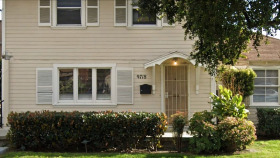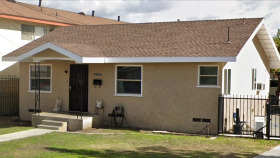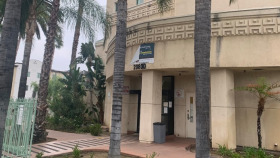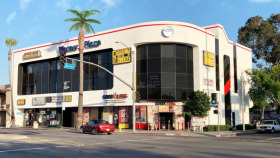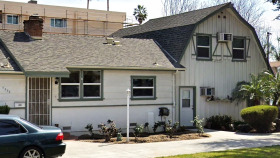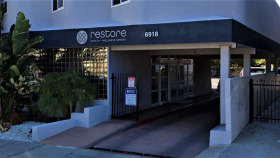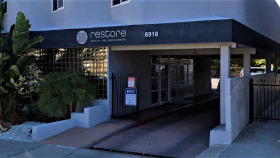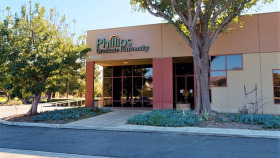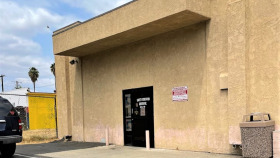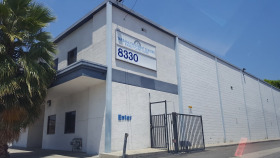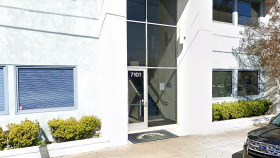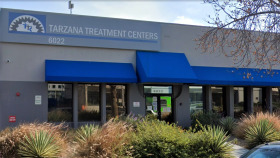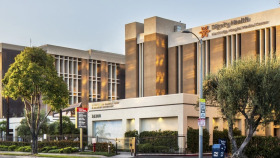Substance Abuse Stats in Bellflower, CA
Here are some statistics related to substance abuse and overdose rates in Bellflower and Los Angeles County:1,2
16.8% of Orange County adults binge drink.2
55% of LA County adults drank alcohol in the past month.
Nearly 4% of residents misused prescription opioids.
Levels of Substance Abuse Care
Multiple levels of care exist for addiction treatment. Some California residents require all levels of care during their journey to recovery, while others receive only the less intensive options.
Medical Detox
Detox is the process of safely and comfortably removing drugs or alcohol from your system while in a supervised medical setting. Many people choose a medical detox program to prevent severe withdrawal symptoms. This is often the first step in the recovery process, completed before transitioning into formal inpatient addiction treatment services.
Inpatient Drug and Alcohol Rehab
An inpatient or residential setting involves living at an accredited rehab facility 24/7 to receive treatment for addiction. A combination of evidence-based interventions are provided, including individual and group therapy, nutritional counseling, and medication administration.
Partial hospitalization programs (PHPs):
PHPs are a type of outpatient treatment in California that often involve many of the same therapies and methods of inpatient care. The difference being that you only visit the drug rehab during scheduled session times, then you can return home.
Intensive Outpatient Programs (IOPs):
A step down from PHPs, IOPs are a type of outpatient treatment in California allowing you to attend onsite sessions for several hours a day, multiple days each week, while spending the rest of your time at home, working, or fulfilling other obligations.
Standard Outpatient:
As the least intensive setting, standard outpatient care is appropriate for California residents who are highly motivated and have a strong support system. It involves just one or two hours of treatment per week.
Relapse Prevention
Aftercare, or relapse prevention, provides ongoing support after a rehab program is complete. Aftercare may include 12-step groups, non-12-step groups like SMART Recovery, ongoing therapy, sober living homes, and more.
How to Pay for Substance Abuse Treatment in Bellflower, California
Private Insurance
Every insurance provider in the U.S. is required by law to provide at least some coverage for mental health and substance abuse treatment. In California, residents should contact their insurance provider to confirm specific coverage with their carrier, including applicable copays.
Medi-Cal
Medi-Cal is California’s Medicaid program. Funded by federal and state taxes, this program pays for medical services for children and adults who have limited income. To qualify for Medi-Cal, California residents must meet income requirements and be one of the following: pregnant, responsible for a child under 21 years old, blind, disabled or a disabled family member, or 65 years or older.
California Medicare
California Medicare is a government program providing coverage to residents who are over the age of 65 or who have end-stage renal disease. California residents can use Medicare to cover the cost of rehab and other addiction treatment services; however, not all rehabs accept Medicare insurance.
Sliding Scale Rehabs
Sliding scale payment plans only charge California residents what they can afford, based on their income. To qualify, residents typically need to provide proof of income and assets.
TRICARE in California
California TRICARE (West Region) is a government program that provides health insurance for military personnel, veterans, and their dependents. TRICARE coverage includes addiction treatment services, such as rehab and medication-assisted treatment (MAT).
State-Funded and Free Rehab in Bellflower, CA
For California residents who can’t afford treatment, state-funded and free rehab services may be available. These programs use government funding to pay for the treatment. To qualify, residents may be required to provide proof of income.
Sliding Scale Rehabs
Sliding scale rehabs offer income-based fees, meaning they charge only what a Florida resident can reasonably afford to pay. To qualify for a sliding scale rehab in Florida, residents typically are required to show proof of income.
IHS-Funded Drug Rehabs
Drug rehab programs funded by the Indian Health Service provide free addiction treatment to Alaskan Natives and Indigenous people in the U.S.
Bellflower Local Information: Transportation and Attractions
Bellflower is located in Los Angeles County, giving visitors access to everything that Los Angeles has to offer. If you are considering traveling to Bellflower for drug and alcohol rehab, you will want to know how to get there, how to get around, and what the city has to offer. Conversely, if someone you love is attending drug rehab in Bellflower and you want to visit, you’ll want to know the lay of the land.
Getting There:
Fortunately, Bellflower is close to many airports, such as the Long Beach Airport, the Los Angeles International Airport, the John Wayne Airport, and the Bob Hope Airport. This should give you plenty of options when trying to book an affordable flight to a Bellflower rehab.
If you live along the coast in California, you can take the Amtrak Pacific Surfliner to LA from either direction. This train lines the coast and offers beautiful views of the ocean and rolling hills.
Getting Around: Bellflower is a very walkable and accessible city, with a walk score of 90 out of 100, which means you likely won’t need a car while you’re there unless you want to drive to attractions in the greater LA and SoCal area. It’s also a very bikeable city.
If you prefer public transportation, Bellflower offers a fixed-route bus system that runs Monday through Friday. Car services like Lyft and Uber are also readily available if you need a more direct route somewhere.
Car rentals may be somewhat costly, especially if you are going to be in Bellflower for a significant period of time.
Things to Do: When you are visiting Bellflower, you have access to many attractions, such as Disneyland, Universal Studios, the Hollywood Sign, Santa Monica Pier, Griffith Observatory, and more. You also have access to beautiful beaches, such as Venice Beach, Long Beach, Malibu, and more. If you’d rather stay right in Bellflower, there are many restaurants, shops, museums, and parks in the city.
If golfing is your thing, be sure to check out Lakewood Golf Course, a beautiful, 7,000-yard course. For some family-friendly fun, check out the Aquarium of the Pacific in Long Beach, home to over 11,000 marine animals. Likewise, you may want to plan a visit to Knotts Soak City in Buena Park, which has plenty of water rides, a lazy river, and a children’s play area.
Bellflower is a beautiful and peaceful place to consider attending drug and alcohol rehab, offering many types of rehabs, including luxury, holistic, and low-cost.
California Alcohol and Drug Laws
California laws include the following policies regarding substance abuse:1,2,3,4,5
California Employee Protections for Drug or Alcohol Rehab: California’s labor code requires employers with 25 or more employees to provide accommodation to staff who voluntarily choose to attend alcohol or drug rehab. This may include unpaid time off or use of sick or vacation time. Employees who wish to request time off for addiction treatment may be able to request it under the Family and Medical Leave Act or the California Family Rights Act.
Substance Abuse and Crime Prevention Act: This act provides treatment opportunities for individuals who are convicted of non-violent crimes. Eligible offenders may serve their time in drug treatment rather than in prison.
California Government Prevention and Care Services: This bill protects residents undergoing addiction treatment by requiring alcohol and drug rehabs in California to adopt a client bill of rights that seeks to ensure every client is are treated with dignity, honesty, and respect.
California Ethical Treatment for Persons with Substance Use Disorder Act: Senate Bill 110 expanded these services to include contingency management (an incentivized treatment program) as a benefit covered under Medi-Cal. Patients who demonstrate substance-free behavior, such as drug-free urine tests, are rewarded with vouchers or gift cards.
California’s Good Samaritan Law: This law encourages California residents to call 9-1-1 if an overdose is suspected. It protects individuals who seek emergency medical care for overdose from legal repercussions for possession of a controlled substance/drug paraphernalia or providing alcohol to minors.
Resources
- County of Los Angeles Public Health. (2022). SAPC Data Brief: Excessive Drinking and Consequences.
- County of Los Angeles Public Health. (2022). SAPC Data Brief: Prescription (RX) Opioid Misuse/Abuse and Consequences.


